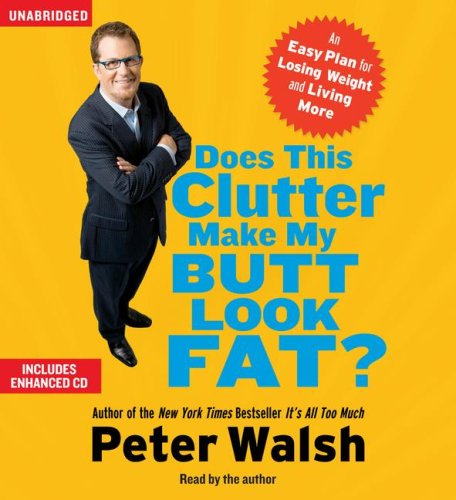Items related to Does This Clutter Make My Butt Look Fat?: An Easy Plan...

Synopsis
Discusses how to apply organizational logic to weight-loss goals, sharing advice on how to adjust food choices, shopping habits, and a kitchen environment as part of maintaining a weight-conscious lifestyle.
"synopsis" may belong to another edition of this title.
About the Author
Peter Walsh is an organizational consultant and the author of How to Organize (Just About) Everything. His media exposure includes appearances on The Early Show and Fox News, as well as in such publications as USA Today, The New York Times, and Real Simple. He divides his time between Los Angeles and Melbourne, Australia. For more information about Peter visit www.peterwalshdesign.com.
"About this title" may belong to another edition of this title.
FREE shipping within U.S.A.
Destination, rates & speedsSearch results for Does This Clutter Make My Butt Look Fat?: An Easy Plan...
Does This Clutter Make My Butt Look Fat?: An Easy Plan for Losing Weight and Living More
Seller: SecondSale, Montgomery, IL, U.S.A.
Condition: Very Good. Item in very good condition and ready to ship - Guaranteed to play!! Seller Inventory # 00032036693
Quantity: 1 available

